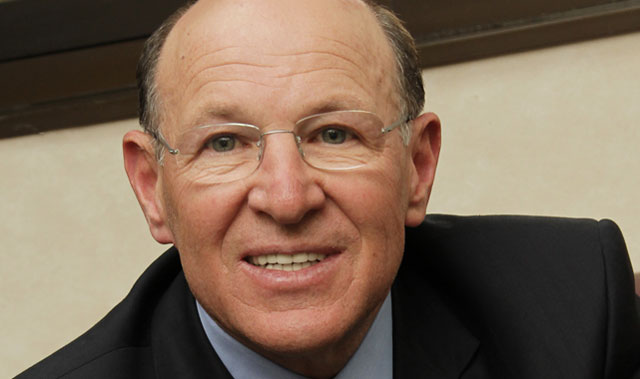
Len de Villiers, Telkom’s chief information officer, says he enjoys a challenge. He says, too, that he’s a sucker for punishment. He’s certainly taking on a big challenge — and a punishing one — in attempting, as he is, to modernise and consolidate Telkom’s complex IT systems from end to end.
De Villiers is no stranger to big technology projects. A previous group CIO at Nedbank, he helped lead the bank’s big turnaround. He’s also led big projects at First National Bank and, more recently, at Absa, where he was also CIO.
“When I first spoke to [Telkom CEO] Sipho [Maseko], he told me this would probably be the biggest challenge I’ll ever take on,” he tells TechCentral over coffee.
That’s quite something, given De Villiers was intimately involved in the Hogan migration at First National Bank, at the time one of the biggest IT projects undertaken in South Africa.
“Sipho said this one would be even bigger and more complex. Telkom is a 140-year-old company — if you want legacy, you’ve got it.”
Indeed, dealing with legacy infrastructure and systems is one of De Villiers’ biggest challenges as Telkom’s CIO.
“The challenge is really about taking the technology to a new destination that fits and supports the new business model of Telkom. The banks are complex businesses; Telkom is more complex,” he says.
Part of the challenge is that banks have distinct IT operations that provide services to corporate users; Telkom is a technology organisation where everyone has a significant amount of knowledge of IT and communications already.
There’s also the complexity of managing the overhaul of technology systems that are integrated with South Africa’s “biggest and most complex network”, De Villiers says.
“The traditional CIO has an IT shop with a network. You have maybe 100 or 200 guys in networks. In Telkom, the networking group is so massive and complex it belongs in its own structure with 16 000 people.”

Legacy everywhere
Figuring out what to do with the legacy and duplicate systems built over decades has been one of De Villiers’ most demanding tasks. Many of these systems were written at a time when no packaged solutions were available, so they were coded in computer languages now mostly forgotten.
To ensure Telkom can become a more efficient and customer-friendly organisation, many of these systems need to be replaced, upgraded, rewritten or scrapped.
Proper project management and adherence to deadlines is therefore crucial. Telkom has a staggering 314 legacy IT systems, according to De Villiers.
“What I’m trying to build is a new aeroplane while the other one is still in the air and while making sure the new one will accommodate all the new requirements,” he says. “Once both are flying, we’ll start migrating passengers without the passengers getting anxious and causing risk.”
Most of the big upgrade work is done over weekends to minimise risk and reduce the impact on the business.
“Every weekend is jam-packed,” says De Villiers. “People fight to get their slots as to what they can and can’t deploy. When normal Telkom business closes out on a Friday, we start. We put in networks, new switches, we upgrade data centres and release new functionality.”
At any one time, Telkom is working on over a thousand projects. Not all of these are strategic, of course.
The bigger, more strategic projects are categorised into areas such as customer experience (a top priority for Telkom, De Villiers says), the new-generation network the company is building, and new revenue-generating products.
One of De Villiers’ key projects is ensuring Telkom has a single, integrated view of its customers. Ensuring clients have a seamless experience across fixed-line, mobile, voice and data services is difficult when there’s a mountain of legacy still powering those divisions.
New support stack
A key underpinning of all this change is a new OSS/BSS stack for Telkom’s retail business, which De Villiers and his team are building.
OSS/BSS is telecoms industry jargon and is short for “operations support systems” and “business support systems”. These are the fundamental systems underpinning any modern telecoms business.
Telkom has chosen an Amdocs OSS/BSS solution for its retail business, which it is “populating” with business processes and parameters. (The company also runs a Huawei OSS/BSS solution in its wholesale business.)
The retail OSS/BSS project has a budget of about R2,5bn.
The company has to split its wholesale and retail arms to comply with an agreement with the Competition Commission. The new system has to be architected with this in mind. “You can’t have the retail and wholesale guys knowing what each other is up to,” De Villiers says.
“I have split the systems and separated the stacks. We have to split the SAP finances, and the human capital SAP systems, and the billing and assurance, warehousing and order management systems — everything has to be separated.”
De Villiers and his team are working with both Telkom’s retail and wholesale divisions to finalise their product strategies. “This is a very big project with a four-year timeline.”
He downplays a suggestion the split has been forced on Telkom by the competition authorities.
“We are doing this because we think it’s the right thing to do, and because we think it’s good for our business. It’s good to have a wholesale business model that works and a good retail model that works,” he says. — © 2015 NewsCentral Media

